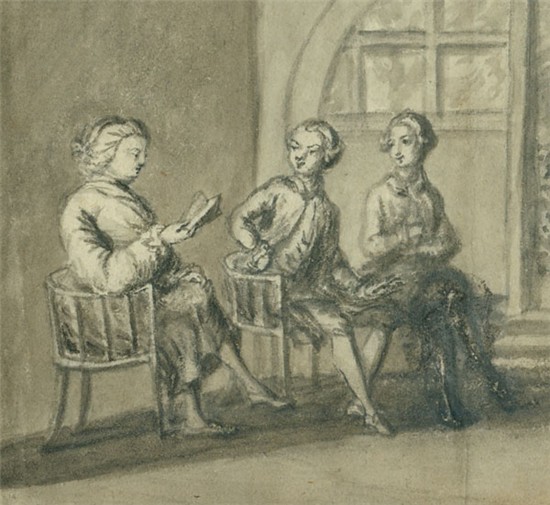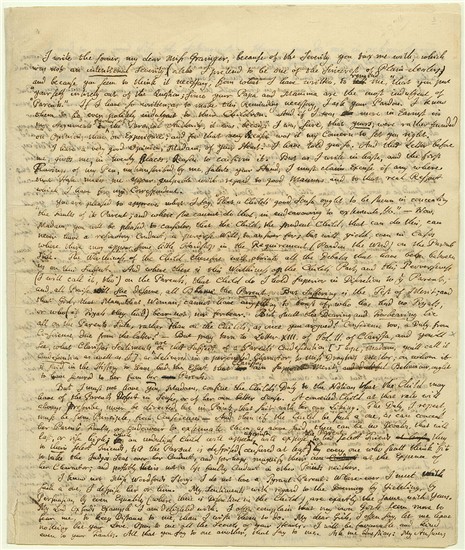
Over 250 years after its publication, Samuel Richardson’s Clarissa still has the honor of being the longest novel in the English language. This melodramatic epistolary novel clocks in at over 950,000 words, and was initially published in seven volumes. It follows the beautiful and virtuous Clarissa as she resists her family’s attempts to arrange a "suitable" (i.e., well-connected) marriage. She is then tricked into running away with the villain Lovelace, who, in his attempts to force Clarissa to marry him, imprisons and finally rapes her. She continues to resist his proposals, and finally escapes -- but she becomes very ill and eventually dies. Clarissa’s family, realizing the misery they caused, is devastated at the news of her death.
Immediately after first reading Clarissa, a young Miss Frances Grainger, the daughter of Richardson’s neighbor, the pawnbroker Thomas Grainger, wrote to the author (the final volume was published on December 6, 1748; Richardson’s initial reply to Miss Grainger is dated the 20th of that month), and a lively correspondence sprang up. Richardson answers Miss Grainger’s pointed queries about Clarissa, discussing the characters at length. He also touches more generally on the relationship between parents and their children. Frequently citing his own novel to support these views, he praises prudent children, like Clarissa and Miss Grainger, and disparages all “Tyrant-Parents."

In this letter from February 1, 1750, he even remarks on his own experience as a parent, noting: “I often complain that my own Girls seem more to fear me, to keep Distance to me, than I wish them to do. My dear Girls, I often say, let me have nothing but your Love. Open to me all the Secrets of your Hearts. I will be favorable and kind even to your Faults. All that you say to one another, that say to me.” Richardson had five daughters, four of whom survived him, and a son, and his letters to Miss Grainger, which are closely written in a very neat hand, are lively and subtly explore the dynamics of family relationships.
For more information about this letter, click here. For more information about the drawing above, click here.
The Leon Levy Foundation is generously underwriting a major project to upgrade catalog records for the Morgan's collection of literary and historical manuscripts. The project is the most substantive effort to date to improve primary research information on a portion of this large and highly important collection.
